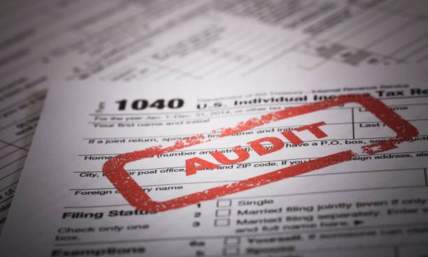How to Do Bookkeeping: Basics Every Small Business Owner Needs to Know
Very few business owners start a small business and nail their bookkeeping straight away. Bookkeeping is a necessary evil of owning a business that isn’t exactly a perk of the business-owning job. However, for how boring it can be, implementing a few bookkeeping methods from the offset will save you time in the long run.
There’s nothing worse than your business accounts not adding up as a result of sloppy bookkeeping practices. Digging around at the bottom of your desk for receipts is not recommended come tax day. So, to make sure your books are all your invoicing and receipts are accounted for, this article is here to help. Implementing these tried and tested bookkeeping methods into your business today will help you save time and money tomorrow.

What Are the Basics of Bookkeeping for Small Business Owners?
Bookkeeping can be defined as the process of recording financial transactions. A business is required to bookkeep so that it has a good grasp on how much money is coming in and where it is going out. Nobody expects a new business owner to nail their bookkeeping straight away.
Good bookkeeping practices take time to make right, so don’t feel overwhelmed at the thought of it just yet. Below are some basic points worth considering before you take the plunge into small business ownership and the subsequent bookkeeping that goes with it.
Also read: Marketing in Business
Choose Your Method
The two main types of bookkeeping methods that 99% of small business owners use are single-entry and double-entry. This is an essential first step as the method that you decide upon will determine how you keep your financial records.
-
Single-entry: Single-entry bookkeeping, as you could have probably guessed, is the less involved option of the two. With single-entry bookkeeping, you are only required to record each of your business’s financial transactions once. This method is especially useful for freelancers and other sole proprietors. People with businesses that have few business tractions every month.
-
Double-entry: Double-entry bookkeeping requires business owners to record every business transaction twice. By recording each transaction as debit and credit, double-entry bookkeeping is a more accurate method of bookkeeping. This allows business owners to pick up financial mistakes before they become a major issue.

Keep Financial Records
Keeping proper financial records is the most important aspect of bookkeeping for business owners. There is little point in cutting corners when it comes to financial records because your business will only suffer because of it. Below we have listed the three cornerstones of keeping financial records for business owners.
-
Cash book: A cash book refers to the various payments that will be coming into and going out of your business bank account. By keeping an up-to-date record of these you will be able to gain an in-depth understanding of how you stand when the numbers are crunched.
-
Sales invoice file: A sales invoice file can be created using an accounting package or manually using a program like Microsoft Word. It is imperative to store your sales invoices in chronological order and shuffle the unpaid ones to the front of the file. This system will allow you to create credit control and better understand who owes you money.
-
Purchase invoice file: Purchasing invoices are part and parcel of running a small business. Whether they be stock or equipment, there aren’t too many businesses that can make money without purchasing products and services first. Remember to make notes on these invoices about when and how you paid them as well as file them in chronological order. These simple steps will help to keep your accountant’s fee low.
Get an Invoice or Receipt for Everything You Buy
It’s no secret that the bigger your business gets the higher the chance that it will be tax audited. Luckily, as long as your paperwork is in order and you have an experienced accountant on your side, all should be okay. The problems arise when there are holes in your bookkeeping that can’t be accounted for.
This is why making sure you get an invoice or receipt for absolutely everything that you buy for your business is so important. If you purchase something online, it is recommended to print off a physical copy for safe keeping in your accounts. Trawling through emails for long-lost invoices is not something you want to be doing when the taxman is breathing down your neck.
Also read: How to Value a Business
Keep Your Business Accounts Clean
Keeping your business accounts clean is a 101 for small business owners. If you mix your personal and business expenses it can be a very time-consuming and tedious experience to have to go through and decipher which purchases are for business and which are personal.
What’s more, if you own or run a limited company, you do not have the right to take money out of the business on your own expenses. The limited company’s money can only be spent on business expenses that are legitimate. Even if you run a small self-employed enterprise, keeping your accounts clean and making sure not to mix business and personal finances is always the best policy.
Also read: Open a Business Bank Account
Make Time for Bookkeeping
Bookkeeping is an after-thought for most small business owners. They will cram it into an evening when they are tired from a day of work and wonder why the numbers don’t add up. If you are someone who treats bookkeeping like it's the bane of your existence then it’s time to make it easier for yourself.
Most people have more awareness and energy in the morning. This means getting up an hour or so earlier than you normally would give you a fighting chance of bookkeeping. If you need to caffeinate yourself prior to sitting down with the stack of invoices then we certainly aren't judging. If you can afford it, setting some time aside in your regular work day can be another clever way of taking your bookkeeping seriously.
Also read: How to Pay Employees of Small Businesses

Get Help with Bookkeeping
If you can’t face your bookkeeping duties in the morning, let alone the evening, then it is time to call in the professionals. There are many professional bookkeeping companies available to small business owners who take the stress out of the more mundane part of owning a business.
This help isn’t to be confused with an accountant. Bookkeepers specialize in keeping paperwork up-to-date and orderly in the face of disorder. Hiring a bookkeeper will also help you to reduce your accountancy fees because your paperwork will be easily digestible for your accountant. Another point to consider is your time.
If you are able to be able there earning good money instead of beating your head against the wall with your paperwork then you should be. A bookkeeper will be able to do it in half the time while your out earning.
Also read: Best CRM Software Platforms for Insurance Agents
Conclusion
Good bookkeeping practices go a long way in making a business successful. Knowing exactly how much money is coming in and how much is going out is vital to the survival of a business and good bookkeeping will crunch those numbers. We hope this article has been useful for you. Whether it inspired you to give it a go yourself or call in the professionals matters little, what matters is your business doing well.
If you haven't got the most efficient way to produce pay stubs for your employees, check out the pay stub maker today. It is so easy and convenient!















